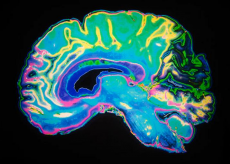
Music and psychological wellbeing:
This particular piece of research is helpful not only in promoting music’s beneficial therapeutic properties, but in the sense that it successfully challenges the criticism that music therapy works only because of the sense of ‘community’ that is provided with these activities. That a control group performed differing activities to music activities and had fewer improvements to their mental and physiological health, thereby utterly refutes the suggestion that it is primarily social interaction providing the benefits. Indeed, I would agree that the social aspect contributes to the overall positive effect, however, I would argue that it is the specific musical activities and their effect upon the brain that leaves us with such positive results. Part of the appealing nature of music is undeniably the communal aspect of it; working together to create and perform a piece of music is irrevocably wonderful. Regardless, the personal act of singing or playing an instrument, not only provides one with a sense of satisfaction and achievement, but catharsis too; a pure expression and release of emotion, which enhances mental wellbeing through the relieving of stress and tension.
Music: Pleasure and Evolutionary Adaptation:
Another study goes on to support this; ‘older adults who participated in a short-term theatre training programme showed significant improvements in measures of cognitive performance and psychological wellbeing,’ (Staricoff, 2004). Surely, this collective evidence implies that music certainly has a place in our longevity as a species, particularly in the preservation of the brain. It seems that even ‘short-term’ engagement in musical activities can have such a dramatically positive impact; this feeds into the previous argument that our brain has adapted to process and comprehend music, perhaps even as a ‘survival’ mechanism; even minimal effort on our part can substantially improve cognitive functioning and psychological health, thus implying that our brains are naturally equipped to respond to such interventions. The fact that music is linked with ‘pleasure’ as Pinker would describe it, only bolsters this notion. There are many other such evolutionary behaviours that have arisen out of promoting survival, i.e procreation. Sex is inextricably linked with our pleasure centres, and triggers the release of ‘attachment’ hormones such as Oxytocin, along with releasing excessive amounts of Dopamine and Serotonin, which accentuate the feelings of ecstasy. Thereby, our predecessors engaged in frequent acts of procreation due to the essential ‘operant conditioning’ that was occurring; the act of sex was subconsciously linked with feelings of pleasure and enjoyment, thus ensuring that our ancestors would continue to engage in these acts for this very reason, but by doing so, they would unwittingly be ensuring the survival of the human race.
Freud, the Father of Psychoanalysis, belittled music as nothing more than ‘infantile escapism.’ This may not necessarily be a negative. If we are assuming that music is tied with sensations of pleasure, then ergo, we are more likely
to participate in musical activities, and listen to music, thus unintentionally reaping the benefits that music has upon our neurobiology. We may choose to listen to music induced by a sort of hedonistic, pleasure-seeking attitude, but this response has been ingrained so as to promote neural conservation, through the ‘exercising’ of regions of the brain, and the increased propensity for neuro-plasticity.
image:http://www.slate.com/articles/health_and_science/science/2013/07/what_is_dopamine_love_lust_sex_addiction_gambling_motivation_reward.html

0 Comment:
Be the first one to comment on this article.